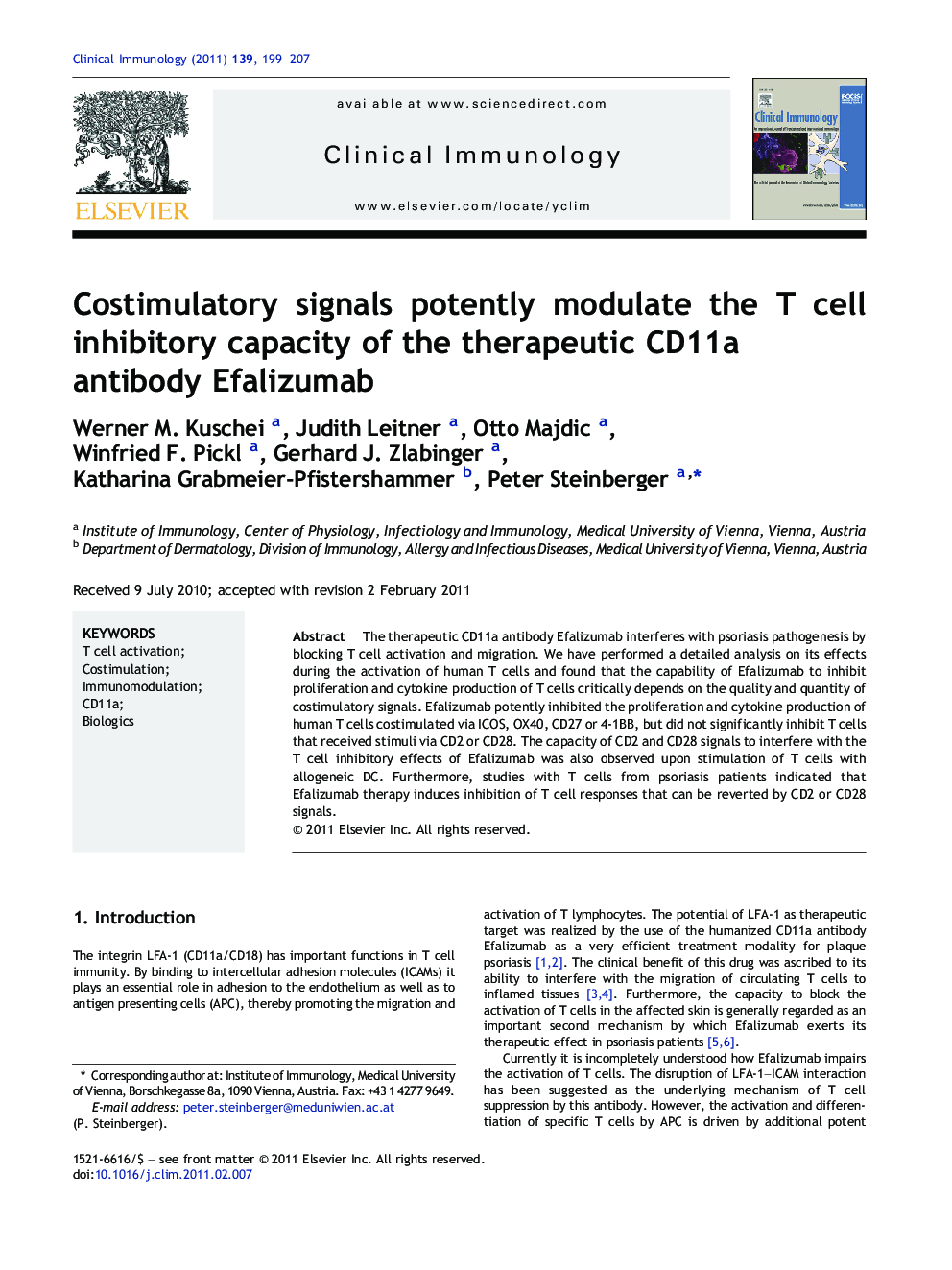| Article ID | Journal | Published Year | Pages | File Type |
|---|---|---|---|---|
| 3257260 | Clinical Immunology | 2011 | 9 Pages |
The therapeutic CD11a antibody Efalizumab interferes with psoriasis pathogenesis by blocking T cell activation and migration. We have performed a detailed analysis on its effects during the activation of human T cells and found that the capability of Efalizumab to inhibit proliferation and cytokine production of T cells critically depends on the quality and quantity of costimulatory signals. Efalizumab potently inhibited the proliferation and cytokine production of human T cells costimulated via ICOS, OX40, CD27 or 4-1BB, but did not significantly inhibit T cells that received stimuli via CD2 or CD28. The capacity of CD2 and CD28 signals to interfere with the T cell inhibitory effects of Efalizumab was also observed upon stimulation of T cells with allogeneic DC. Furthermore, studies with T cells from psoriasis patients indicated that Efalizumab therapy induces inhibition of T cell responses that can be reverted by CD2 or CD28 signals.
